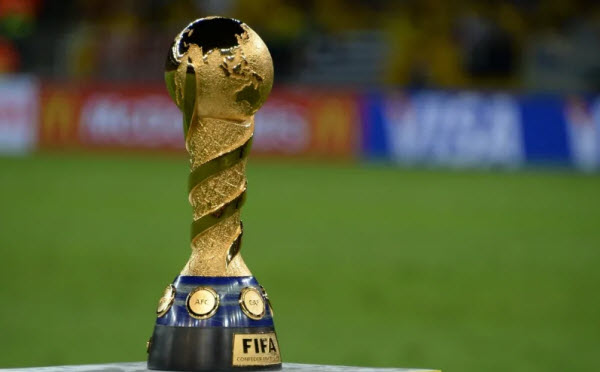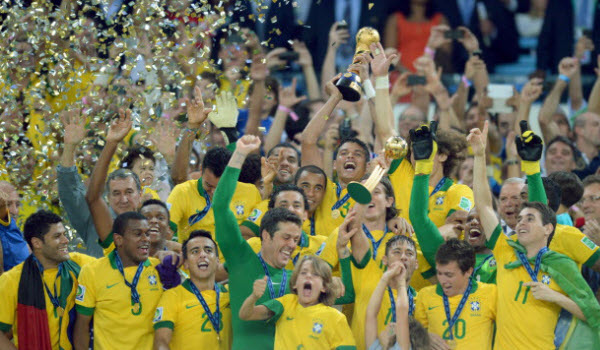The FIFA Confederations Cup was an international football competition organized by the Fédération Internationale de Football Association (FIFA) every four years. The tournament featured the champions of the six continental championships—Africa, Asia, Europe, North America, South America, and Oceania—along with the current FIFA World Cup holder and the host nation, totaling eight teams. Since the turn of the millennium, the tournament was held in the country hosting the World Cup the following year, serving as a prelude and test event for the larger tournament. Despite its popularity, FIFA announced in 2019 that the Confederations Cup would be discontinued, replaced by other tournaments such as the FIFA Club World Cup and the Arab Cup, which served as a precursor to the 2022 World Cup in Qatar.
The origins of the Confederations Cup trace back to Saudi Arabia, which organized the competition in 1992 and 1995. Known then as the “King Fahd Cup,” it honored Saudi Arabia’s monarch at the time. In 1997, FIFA took over the organization, renaming the event the FIFA Confederations Cup and officially recognizing the previous two editions. The tournament was held every two years until 2005, when it was switched to a four-year cycle, occurring in the year before the World Cup and hosted by the same country to test preparations and gain experience, utilizing around half of the World Cup’s venues.

Typically, the Confederations Cup included the host country, the World Cup champion, and the winners of the six continental championships. However, there were exceptions when a team qualified under multiple criteria. For example, in 2001, France, as the World Cup and UEFA European Championship holder, led to the invitation of an additional team, often the runner-up in one of these competitions. Occasionally, teams withdrew from participation, such as Germany not participating in 1997 and 2003. In 1997, the Czech Republic replaced Germany, and in 2003, Turkey took the place of Germany. Additionally, France, the World Cup champion, did not participate in 1999, replaced by Brazil, the runner-up of the 1998 World Cup. Italy, the runner-up of the 2000 UEFA European Championship, also withdrew from the 2003 Confederations Cup.

In October 2017, FIFA announced plans to abolish the Confederations Cup by 2021, replacing it with the FIFA Club World Cup, which would be held every four years and include 24 teams, shifting its timing from December to June. On March 15, 2019, FIFA officially confirmed the cancellation of the Confederations Cup and the expansion of the Club World Cup. To fill the void, UEFA President Aleksander Čeferin and CONMEBOL President Alejandro Domínguez initiated efforts in July 2021 to launch a competition between the winners of Copa América and the UEFA European Championship. The idea was to have this new tournament take place two years before the World Cup, with the inaugural edition scheduled for 2022. On June 1, 2022, Argentina defeated Italy in the final.
In the Confederations Cup, the eight qualified teams were divided into two groups, ensuring that no two teams from the same continental federation were in the same group unless there were three teams from that federation, which occurred only in the 2017 edition. In that year, Russia was the host nation, joined by World Cup champion Germany and European champion Portugal. During the group stage, each team played against the others to accumulate points, with the top two teams from each group advancing to the semifinals. The group winners faced the runners-up from the other group, and the winners progressed to the final while the losers played for third place. If a knockout stage match ended in a draw after regular time, extra time of two 15-minute halves was played, followed by a penalty shootout if necessary.

Tournament History Table
| Year | Host Country | Winner |
|---|---|---|
| 1992 | Saudi Arabia | Saudi Arabia |
| 1995 | Saudi Arabia | Denmark |
| 1997 | Saudi Arabia | Brazil |
| 1999 | Mexico | Brazil |
| 2001 | South Korea/Japan | France |
| 2003 | France | France |
| 2005 | Germany | Brazil |
| 2009 | South Africa | Brazil |
| 2013 | Brazil | Brazil |
| 2017 | Russia | Germany |
